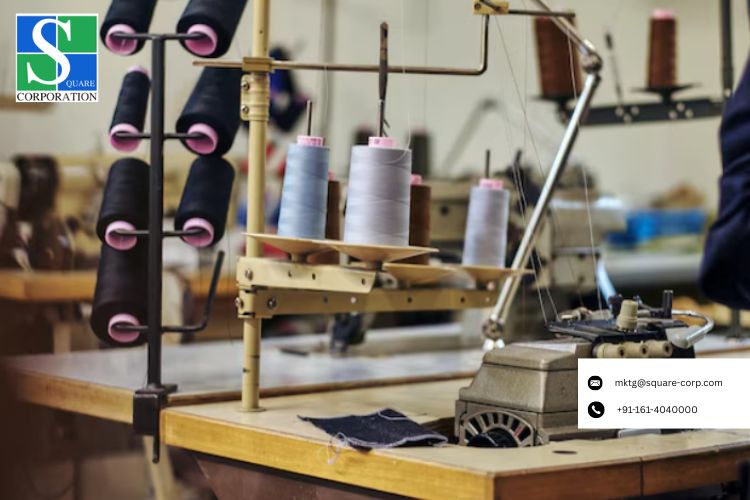What keeps the global fashion and home-textile industry humming? Behind the scenes, it’s the powerhouse network of Spinning Mills in India that turn raw cotton into premium yarn, ready for designers in Paris or furniture makers in New York. These mills blend tradition with high-tech efficiency, making India a must-watch player in global yarn exports.
The Spinning Advantage of India
India stands among the world’s top three producers of cotton yarn, supported by a robust domestic crop and a skilled workforce. According to the Ministry of Textiles (texmin.nic.in), Indian yarn exports exceeded USD 4 billion recently, with major buyers in China, Bangladesh, and Europe. That scale allows mills to negotiate better raw material costs, pass savings to B2B buyers, and still maintain rigorous quality standards.
Leaders in the Indian Spinning Landscape
A handful of companies dominate the international market thanks to advanced equipment and a knack for innovation. Among the noteworthy names:
- Vardhman Textiles: With vertically integrated operations, Vardhman consistently delivers high-strength yarns prized by European knitwear brands.
- Arvind Limited: Known for denim but equally formidable in cotton yarn, Arvind combines sustainability with fashion-forward expertise.
- KPR Mill: Backed by state-of-the-art machinery, KPR ensures precision and uniformity, crucial for demanding B2B buyers.
These mills prove that high capacity can still mean high quality—something overseas buyers often worry about when scaling orders.
What Global Buyers Prioritize
Procurement teams look beyond price when sourcing yarn. Here are three essentials they weigh carefully:
- Consistency: Uniform count and minimal contamination reduce wastage and improve final product quality.
- Eco-Credentials: Certifications like OEKO-TEX and GOTS aren’t optional anymore—they’re baseline expectations (oeko-tex.com).
- Responsive Logistics: Reliable lead times and transparent shipping updates can make or break a retail season.
Growing Demand for Organic and Specialty Yarns
The organic textiles market is booming, driven by brands seeking traceable, chemical-free cotton. Partnering with an Organic Yarn Supplier gives global buyers an edge with eco-conscious consumers. Many mills now source cotton directly from certified Organic Cotton Farms, ensuring authenticity from field to spindle.
Tech-Driven Precision
Automation is no longer a buzzword but a requirement. Indian mills invest in AI-powered quality monitoring and IoT-enabled machinery to minimize defects. For B2B buyers, this means tighter tolerances and fewer surprises upon delivery.
Tips for Sourcing Yarn from India
- Request Samples Early: Evaluate tensile strength and colorfastness before committing to large contracts.
- Negotiate Lead Times: Plan for seasonal peaks; mills often book out months in advance during cotton harvest season.
- Look for Multi-Blend Options: Blends of cotton with bamboo or modal yarn can diversify your product range while staying cost-competitive.
India’s extensive port network—especially in Gujarat and Tamil Nadu—further streamlines exports, reducing transit costs and delays.
FAQs on Indian Spinning Mills
Which regions of India host the largest spinning mills?
Key hubs include Tamil Nadu’s Coimbatore region, Maharashtra, and parts of Gujarat, all with excellent access to cotton supply and export infrastructure.
Do Indian mills offer customized yarn blends?
Yes. Leading exporters frequently create bespoke blends—cotton-modal, bamboo-cotton, and recycled poly-cotton—to match specific buyer requirements.
Are Indian yarns competitively priced for bulk exports?
Absolutely. India’s large domestic cotton base and economies of scale typically ensure lower costs without compromising on international standards.
What certifications should buyers request?
Common standards include OEKO-TEX, GOTS for organic yarn, and ISO 9001 for quality management, all widely held by top-tier Indian mills.
Also Read: Ultimate Guide to Spot a Fabric Defect Before You Purchase
Final Thoughts
Indian spinning mills offer more than volume—they deliver reliability, innovation, and a commitment to sustainability. For global B2B buyers, partnering with these mills isn’t just a cost-saving move; it’s a strategic step toward resilient, eco-friendly supply chains.
Blog development Credits:
This post was envisioned by Soma Maiti, carefully researched and drafted using cutting-edge AI tools such as ChatGPT, Google Gemini, and Copilot, then fine-tuned for SEO by Digital Piloto Private Limited.



